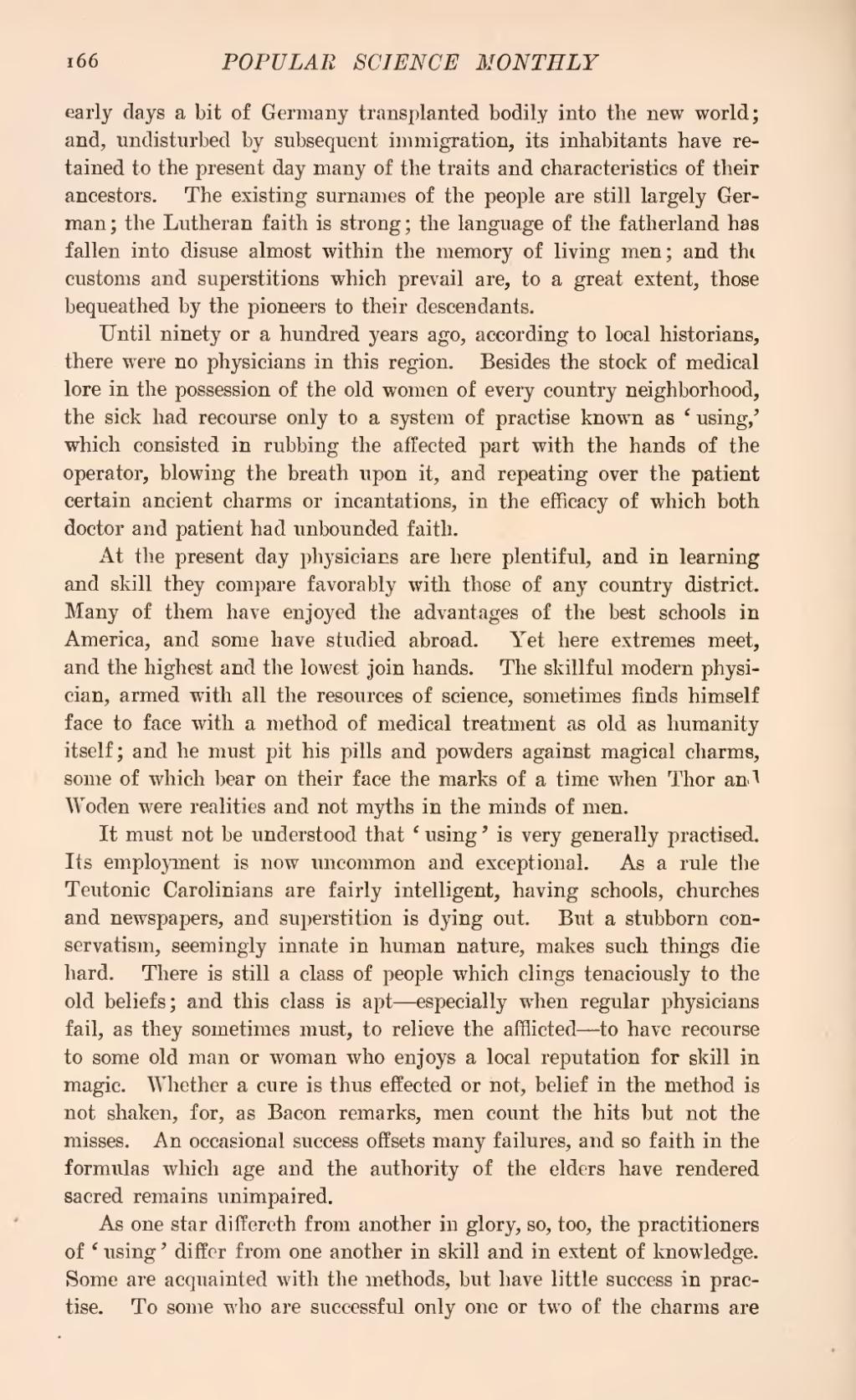early days a bit of Germany transplanted bodily into the new world; and, undisturbed by subsequent immigration, its inhabitants have retained to the present day many of the traits and characteristics of their ancestors. The existing surnames of the people are still largely German; the Lutheran faith is strong; the language of the fatherland has fallen into disuse almost within the memory of living men; and the customs and superstitions which prevail are, to a great extent, those bequeathed by the pioneers to their descendants.
Until ninety or a hundred years ago, according to local historians, there were no physicians in this region. Besides the stock of medical lore in the possession of the old women of every country neighborhood, the sick had recourse only to a system of practise known as 'using' which consisted in rubbing the affected part with the hands of the operator, blowing the breath upon it, and repeating over the patient certain ancient charms or incantations, in the efficacy of which both doctor and patient had unbounded faith.
At the present day physicians are here plentiful, and in learning and skill they compare favorably with those of any country district. Many of them have enjoyed the advantages of the best schools in America, and some have studied abroad. Yet here extremes meet, and the highest and the lowest join hands. The skillful modern physician, armed with all the resources of science, sometimes finds himself face to face with a method of medical treatment as old as humanity itself; and he must pit his pills and powders against magical charms, some of which bear on their face the marks of a time when Thor an 1 Woden were realities and not myths in the minds of men.
It must not be understood that 'using' is very generally practised. Its employment is now uncommon and exceptional. As a rule the Teutonic Carolinians are fairly intelligent, having schools, churches and newspapers, and superstition is dying out. But a stubborn conservatism, seemingly innate in human nature, makes such things die hard. There is still a class of people which clings tenaciously to the old beliefs; and this class is apt—especially when regular physicians fail, as they sometimes must, to relieve the afflicted—to have recourse to some old man or woman who enjoys a local reputation for skill in magic. Whether a cure is thus effected or not, belief in the method is not shaken, for, as Bacon remarks, men count the hits but not the misses. An occasional success offsets many failures, and so faith in the formulas which age and the authority of the elders have rendered sacred remains unimpaired.
As one star differeth from another in glory, so, too, the practitioners of 'using' differ from one another in skill and in extent of knowledge. Some are acquainted with the methods, but have little success in practise. To some who are successful only one or two of the charms are

